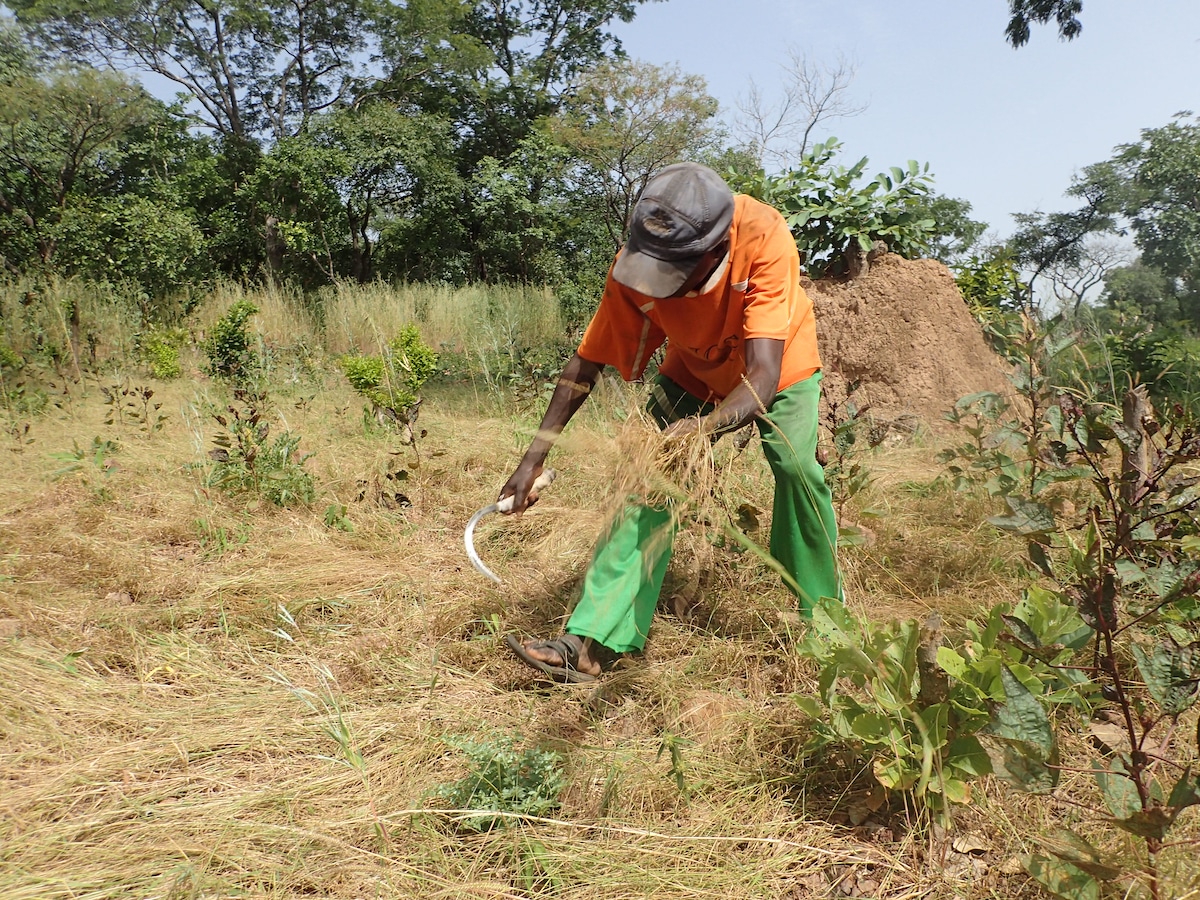Researchers Identify 1,000+ Vitamin B Rich Plants, Though Some Are Threatened
Olivia Rosane
Feb 28, 2022 10:15AM EST

A farmer harvests fonio with a sickle in Senegal. James Courtright / CC BY-SA 4.0
One argument for preserving biodiversity is that there are many plants with medicinal or health benefits that could go extinct before we are even aware of them.
Now, scientists have pin-pointed 1,044 underused plants that could be potential sources of vitamin B, and 63 of them are threatened in their natural habitat.
“We need to pay more attention to the incredible diversity of edible plants to better understand how they can contribute to human nutrition and what we need to do to preserve them for future generations,” study lead author and Imperial College London Department of Life Sciences Ph.D. researcher Aoife Cantwell-Jones said in a press release. “Our study represents an important step in that direction.”
The research, published in Nature Plants on Thursday, is an attempt to find new nutritional plants to help the more than two billion people that suffer from malnutrition worldwide. Currently, people get 60 percent of their plant calories from just rice, maize and wheat.
“For many people, reducing micronutrient deficiencies could be achieved by expanding diets and tapping into the great diversity of edible plants,” the study authors wrote.
The research team from Royal Botanic Gardens, Kew, Imperial College London and other UK and U.S. institutions focused specifically on the problem of vitamin B deficiency, the press release explained. Vitamin B is important for helping us to break down and release the energy from food and to keep our nervous systems healthy, yet many people in both wealthy and poor nations are deficient in this important nutrient. The researchers therefore looked at the vitamin-B levels in almost 300 plants with known nutritional profiles and used evolutionary relationships to predict the vitamin-B content for more than 6,000 edible plants, settling on slightly more than 1,000 plants that were potential sources of B1, B2, B3, B5 and B9.
Examples include several European oat species and a wild grass called fonio that grows in West Africa. A threatened source of vitamin B are the fruits and seeds of some baobabs in Madagascar, but these iconic trees are sometimes used for charcoal or wood instead, which is why they are “Critically Endangered.”
In addition to the known threatened plants, the researchers also found 358 whose conservation status was unknown.
“Losing this edible plant diversity would limit options for identifying future food sources and maintaining genetic diversity, both of which will be essential for food security in the face of challenges, such as climate change,” the study authors wrote.
In addition to promoting conservation and solving malnutrition problems, the research could also support more environmentally friendly diets. That’s because some of the main sources of vitamin B currently are beef, poultry and seafood, according to Euronews Green. Because of this, people who follow vegetarian or vegan diets often need to take vitamin B supplements.
“If we think about a more sustainable future, and if we want to switch to a more sustainable diet, we might need to diversify a bit more our potential source of vitamin B,” study co-author and Kew researcher Dr. Samuel Pironon told Euronews Green.
Thanks to: https://www.ecowatch.com
 RSS Feed
RSS Feed













 March 1st, 2022
March 1st, 2022  Awake Goy
Awake Goy  Posted in
Posted in  Tags:
Tags: 
















